Physikerin der Woche 2022
Since January 2018, the working group on equal opportunities (AKC) of the German Physical Society (DPG) has highlighted weekly women in physics in Germany or German women in physics abroad.
Are you a woman in physics in Germany or a German woman in physics abroad, and would you like to highlight your work within the "Physikerin der Woche" initiative? If so, don't hesitate to contact Dr. Ulrike Boehm at .
Women in physics of all career stages from academia and industry can participate.
Also, please feel free to suggest any suitable candidates.
You can find an article and posters about our initiative in the April 2018 and February 2021 / January 2022 issues of the Physik-Journal. Please feel free to print the posters and advertise our initiative at your research institution.
Participants of previous years can be found here: 2018, 2019, 2020, and 2021.
Dezember
Dr. Eteri Svanidze (Dresden) - Kalenderwoche 52
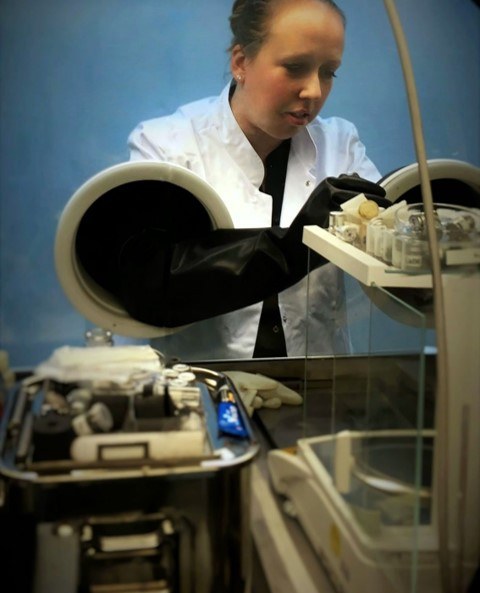
Foto-Rechte: Dr. Eteri Svanidze
Prof.Dr.rer.nat. et med.habil. Laura M. Schreiber, MBA (Würzburg) - Kalenderwoche 51
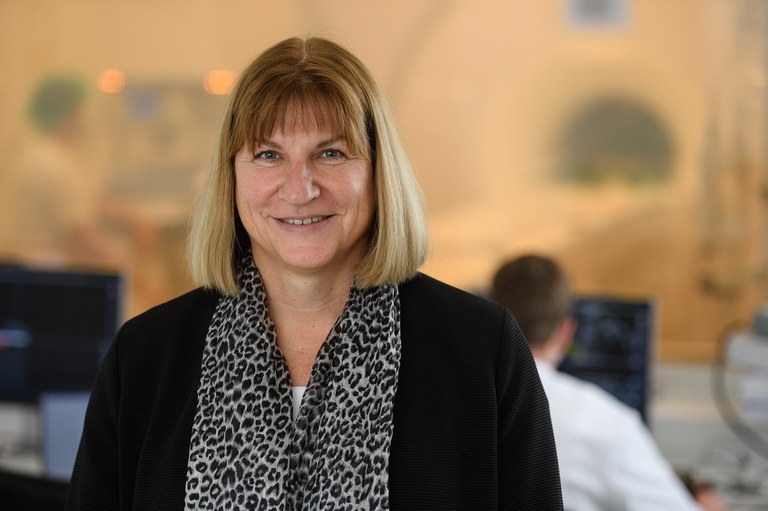
Laura is an experimental physicist who has spent more than three decades with the development of new biomedical imaging methods. Her vision is to “measure and visualize what was not visible before” in the body. She holds a full professorship at the Comprehensive Heart Failure Center of Würzburg University Clinics. Furthermore, she is the founding director of the Department of Cardiovascular Imaging and Chairwoman for Molecular and Cellular Imaging. Her research focuses on novel imaging methods, currently in ultrahighfield magnetic resonance imaging (MRI) of the heart. Earlier research addressed MRI of cancer, quantification of brain perfusion, or MRI of the lung using hyperpolarized or inert gases. She and her team, together with colleagues from a variety of medical specialties, develop and test new MRI methods, build novel radiofrequency coils, and use advanced computational methods such as artificial intelligence or computational fluid dynamics to understand better (patho-) physiology of disease, and the measurement process itself. Moreover, she is interested in science management, particularly in an interdisciplinary context.
Foto-Rechte: Prof.Dr.rer.nat. et med.habil. Laura M. Schreiber, MBA
PD Dr. habil. Jeanette Lorenz (Munich) - Kalenderwoche 50
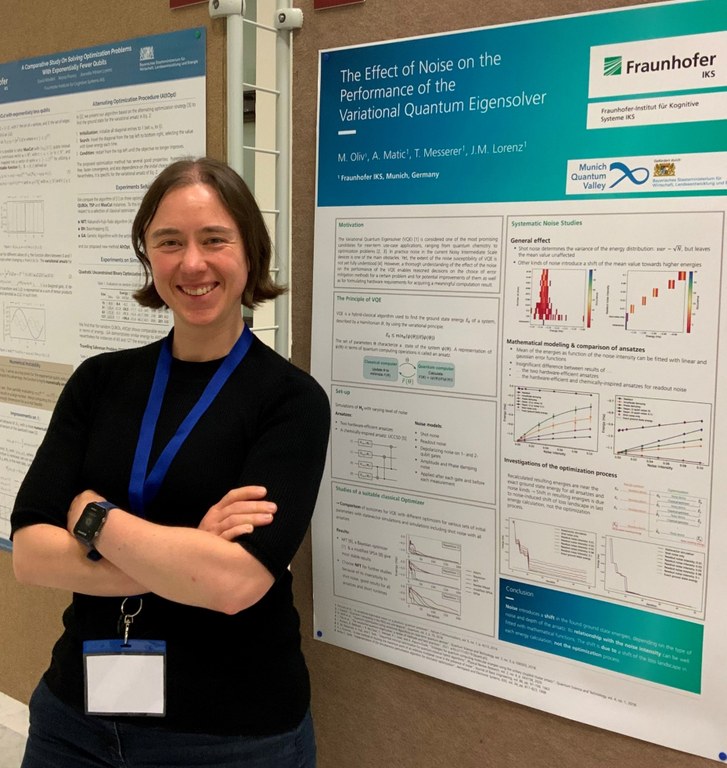
Since 2021 Jeanette has worked as a senior scientist at the Fraunhofer Institute for Cognitive Systems IKS in Munich and has led the quantum computing activities there. She also teaches as a lecturer at the faculty of physics at the Ludwig-Maximilians-University Munich. Before her position at Fraunhofer IKS, Jeannette had a long research career in high energy particle physics, working on the ATLAS experiment at CERN (European Organization für Nuclear Research) near Geneva. There, she focused on searching for new physics beyond the Standard Model, like for Dark Matter particles or supersymmetric particles, and led different larger research projects and groups. At Fraunhofer IKS, she researches how to enable the robust and reliable use of quantum computing in safety-critical applications, like in medical imaging. As a member of the Munich Quantum Valley, she is also interested in understanding what kind of application profits from which type of quantum computing hardware in the future.
Foto-Rechte: PD Dr. habil. Jeanette Lorenz
November
Dr. Gudrun Wanner (Hannover) - Kalenderwoche 48
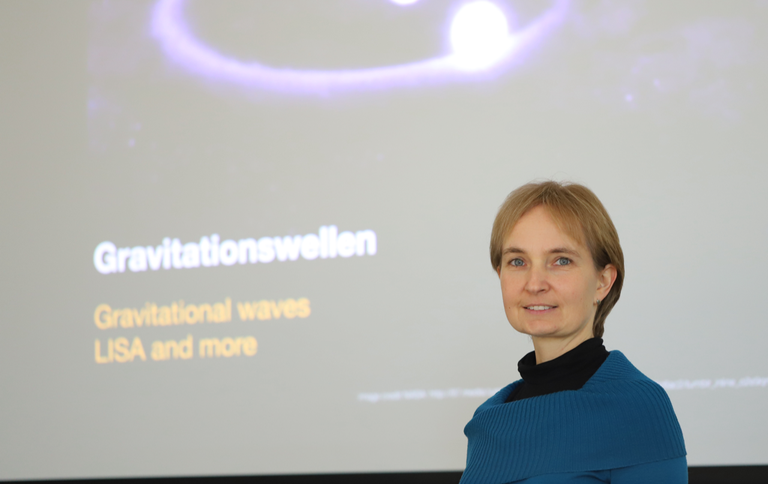
Gudrun is a researcher and independent group leader working on the space-based gravitational wave detector LISA, an ESA mission planned for launch in 2034. Her research at the Max Planck Institute for Gravitational Physics (Albert Einstein Institute) and the Institute for Gravitational Physics at the Leibniz University Hannover focuses on optical simulations and interferometric noise sources. Her work is thereby deepening the understanding of the LISA instrument and an important element needed to achieve the picometre-level precision required for LISA.
Beyond LISA, Gudrun is working on fundamental research aspects in optics and interferometry as part of the Clusters of Excellence QuantumFrontiers and PhoenixD and the Collaborative Research Centre TerraQ.
Foto-Rechte: Dr. Gudrun Wanner
Dr. Karla Loida (Köln) - Kalenderwoche 47
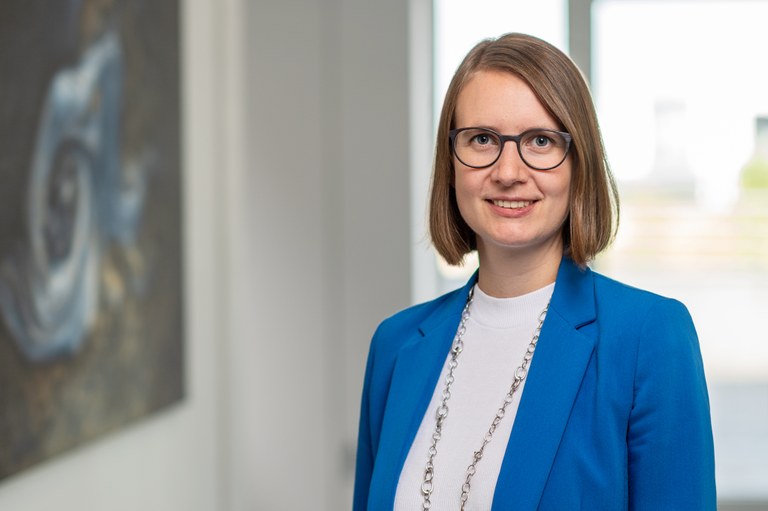
Quantum computers have great potential to change our world in surprising ways. From expected breakthroughs in medical or material science to a possible revolution in cryptography. How can Germany catch up to leading industrial players? How can we impact the market and accelerate the success of start-ups? These are questions Karla Loida asks as project and team lead for the quantum computing hardware of the quantum computing initiative at the German Aerospace Center. Karla is in charge of commissioning industry to build quantum computers and establish a quantum computing industrial ecosystem in Germany. The procurement generates a market and has start-ups, SMEs, and established industries compete. The development contracts are financed 100% - an extraordinary chance for young start-ups to take part in the quantum race. She also leads a team of project managers to supervise and make a success of these high-tech projects.
An interview with Karla can be found here.
Foto-Rechte: Dr. Karla Loida
Prof. Dr. Stefanie Kroker (Braunschweig) - Kalenderwoche 45
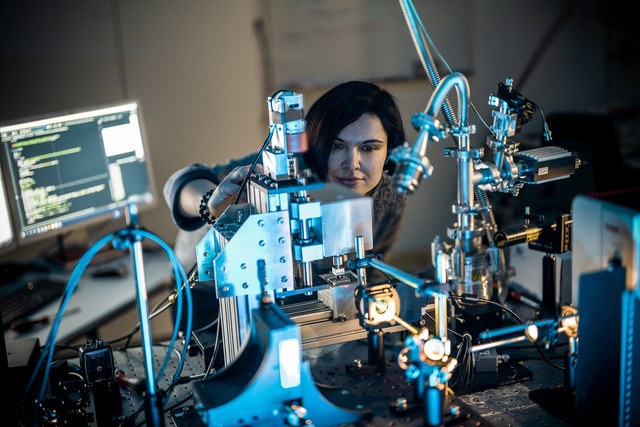
Stefanie is an experimental physicist specializing in photonics and optical quantum metrology. She holds a full professorship at TU Braunschweig and leads a research group at Physikalisch-Technische Bundesanstalt (PTB). Her research focuses on micro- and nanophotonic structures, enabling light control at scales down to a few nanometers. An emerging topic in quantum technology is using photonics for quantum computers with trapped ions to make them compact, robust, and scalable. Besides addressing ions with photons, Stefanie does research on nanostructured mirrors for trapping neutral atoms through integrated chips or for ultra-low noise mirrors for the future of gravitational wave detectors. Since photonic platforms for quantum technologies often must be manufactured very precisely, Stefanie tackles these with research on nanometrological techniques beyond classical resolution limits. As principal investigator, Stefanie contributes with her research to the Cluster of Excellence "QuantumFrontiers.”
An interview with Stefanie can be found here.
Foto-Rechte: Prof. Dr. Stefanie Kroker
Oktober
Dr. Mónica Benito (Ulm) - Kalenderwoche 44
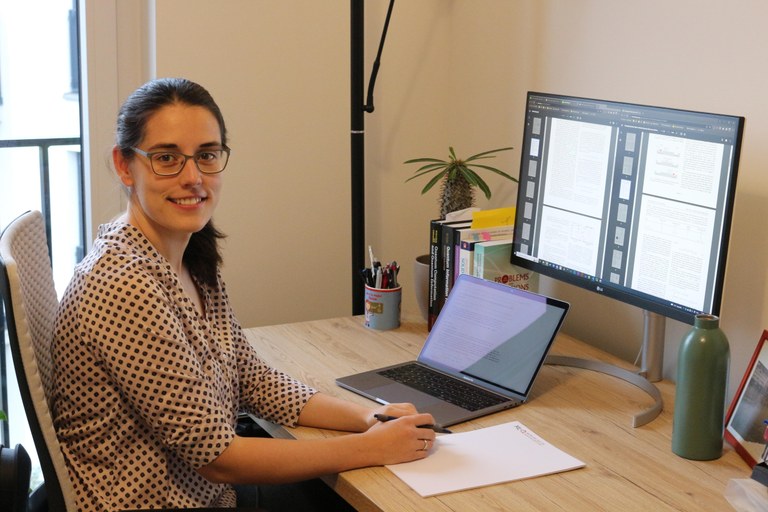
Mónica is a researcher at the Institute of Quantum Technologies of the German Aerospace Center (DLR) in Ulm. She will start her Emmy-Noether junior research group soon. Her main research topic focuses on the modeling of semiconductors and semiconductor-superconductor hybrid systems for scalable quantum computing and the design of device-optimized quantum operations. She has also studied more general aspects of driven and dissipative quantum systems and topological matter. Another research topic of interest is the quantum simulation of solid-state systems and their time evolution.
Foto-Rechte: Dr. Mónica Benito
----- short break -----
September
Prof Dr Maria Chekhova (Erlangen) - Kalenderwoche 38
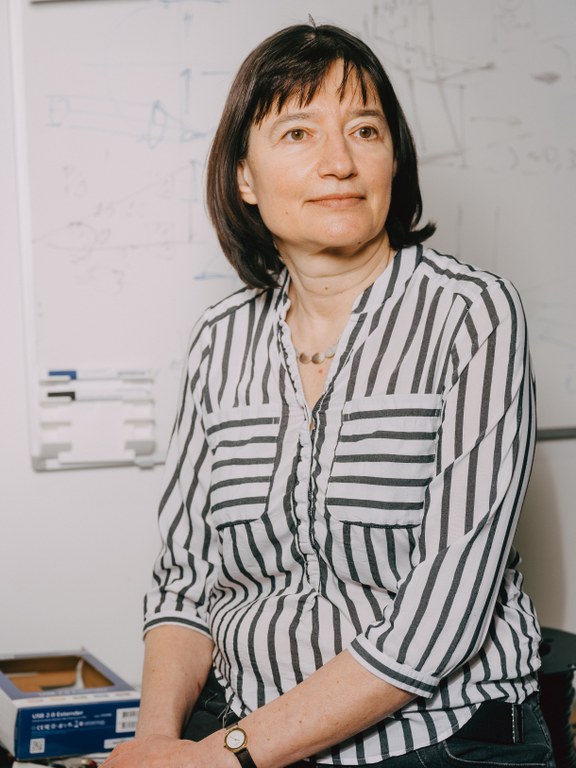
Foto-Rechte: Prof Dr Maria Chekhova
Dr. Hannah Heil (Oeiras, Portugal) - Kalenderwoche 37
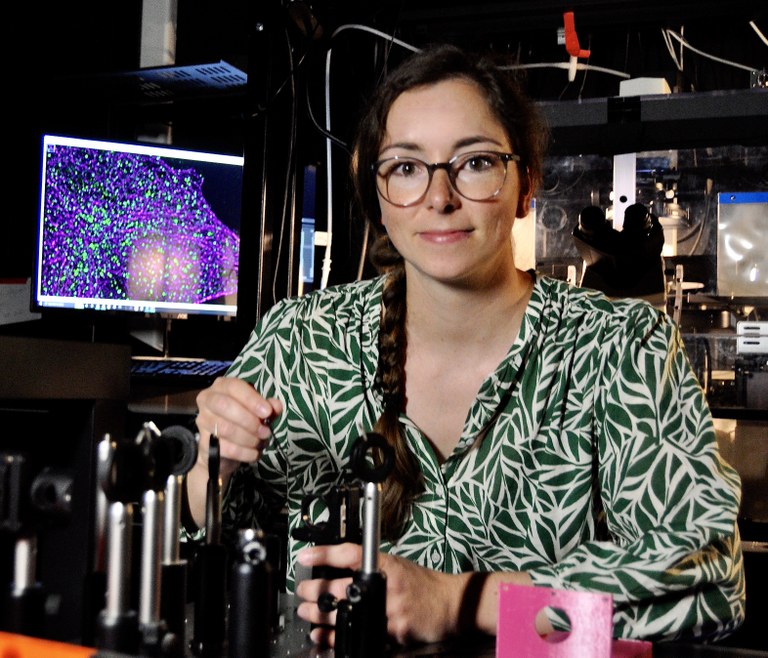
Foto-Rechte: Dr. Hannah Heil
Prof. Dr. Stefanie Czischek (Ottawa, Canada) - Kalenderwoche 36
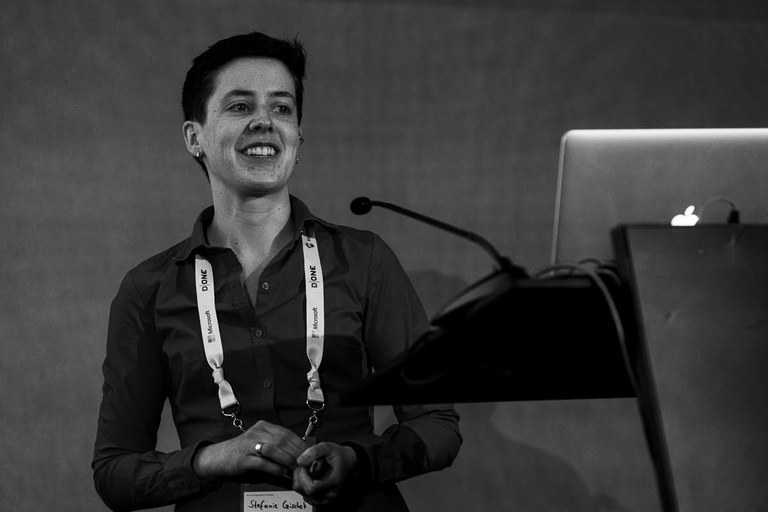
The photo was taken at the Applied Machine Learning Days (AMLD) 2022.
Foto-Rechte: Samuel Devantery
August
M.Sc. Diana Scognamiglio (Bonn) - Kalenderwoche 35
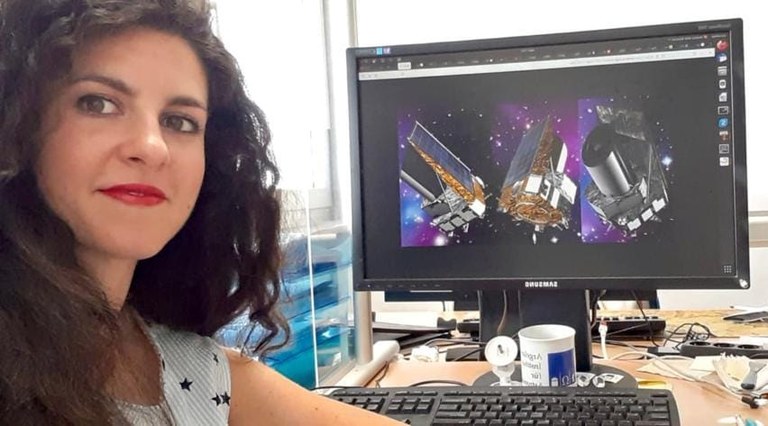
Diana is a Ph.D. student at the Argelander-Institut für Astronomie of Bonn University, and her research areas are Observational Cosmology and Galaxy Evolution.
She is currently working on the scientific preparation of the ESA’s space probe Euclid, in particular, on the development of techniques for weak lensing galaxy shape measurements to extract cosmological information.
In order to well control and correct the systematic errors due to instrumental distortions such as the image point-spread function (PSF), Diana is exploiting the Hubble Space Telescope (HST) archive as a training sample for weak lensing simulations. As an aside project, she is also carrying on a spectroscopic analysis of a rare class of galaxies - the ultra-compact massive galaxies (UCMG) - selected in the Kilo Degree Survey (KiDS).
Foto-Rechte: M.Sc. Diana Scognamiglio
M.Sc. Carolina Burger (Garching/Munich) - Kalenderwoche 34
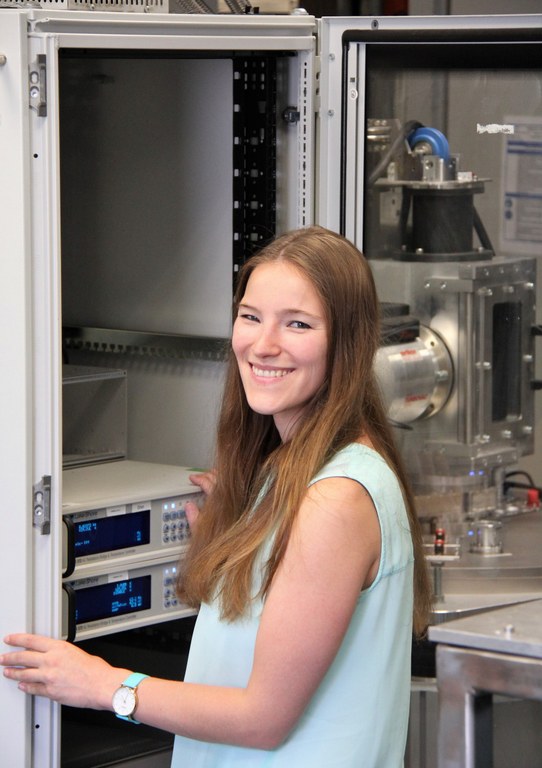
Following her Master’s degree at the Technical University of Munich (TUM), Carolina performs her Ph.D. studies on the low-temperature bulk and transport properties of correlated metals in the group Topology of Correlated Systems of Christian Pfleiderer at the TUM. Specifically, she is interested in the origin of high-mobility surface conduction channels in small-bandgap semiconductors and their possible topological character. Although such materials have a long history, the underlying mechanisms are not understood. When exploring temperature-driven metal-to-insulator transitions, the necessary measurements are extremely sensitive to tiny temperature drifts. For her studies, Carolina is therefore putting into operation a bespoke cryogen-free cooling system based on continuous adiabatic demagnetization refrigeration, providing the necessary temperature control as well as access to high magnetic fields and very low temperatures.
Foto-Rechte: M.Sc. Carolina Burger
Prof. Dr. Sabine Andergassen (Tübingen) - Kalenderwoche 33
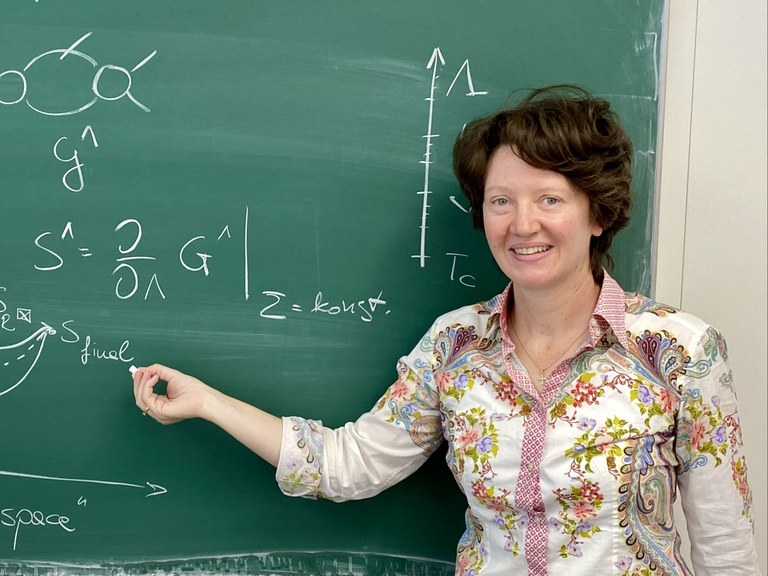
Sabine is a professor of theoretical physics at the University of Tübingen. The research activities of her group focus on quantum many-body effects such as superconductivity or quantum criticality. In particular, the development of new many-body techniques for their theoretical description represents a central aspect in the investigation of the fundamental mechanisms underlying the physical behavior of model systems for materials, cold atomic gases, and nanostructures.
Foto-Rechte: Prof. Dr. Sabine Andergassen
M.Sc. Anne Stockhausen (Bonn) - Kalenderwoche 32
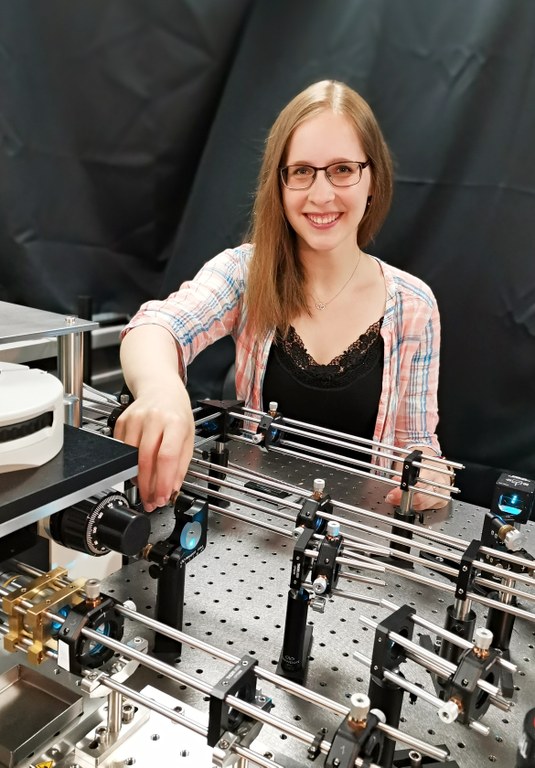
Foto-Rechte: M.Sc. Anne Stockhausen
----- short summer break -----
Juli
Dipl.-Phys. Anna Maria Friedel (Kaiserslautern/Nancy) - Kalenderwoche 27
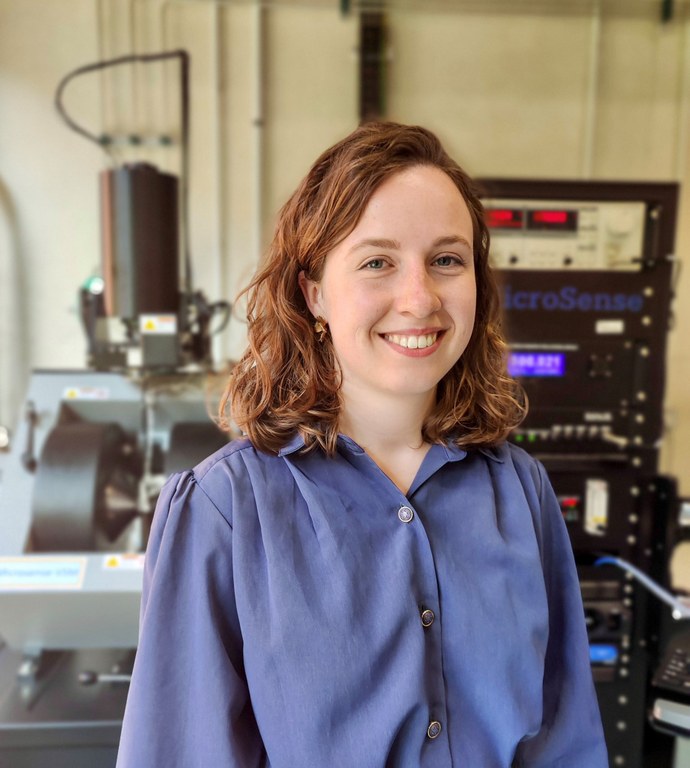
Anna is an experimental physicist working in condensed matter physics with a special interest in magnetism and magnetic materials. She studied physics in Kaiserslautern and is currently pursuing graduate studies in a bi-national Ph.D. program at the University of Lorraine and the Technische Universität Kaiserslautern.
Anna’s Ph.D. project focuses on exploiting half-metallic Heusler materials for spintronic and magnonic applications. She is interested in using them to design devices based on spin currents and spin waves instead of electrical charge currents. After growing epitaxial thin film samples, Anna uses techniques like vibrating sample magnetometry and ferromagnetic resonance spectroscopy for characterization. In the next step, she fabricates nanoscale magnonic devices and investigates them with Brillouin Light Scattering spectroscopy, a powerful optical technique for imaging spin waves. Her work is supervised by J-Prof. Philipp Pirro and Prof. Burkard Hillebrands in the magnetism group in Kaiserslautern, Germany, together with Assoc.-Prof. Sébastien Petit-Watelot and Prof. Stéphane Andrieu in the spintronics and nanomagnetism team in Nancy, France.
Anna received the Franco-German university award Grand Est in January 2022 for her master thesis work on “Thin-film materials with ultralow damping for novel magnonic phenomena.” The picture shows her in front of a vibrating sample magnetometer in one of the magnetism labs at Institut Jean Lamour.
Foto-Rechte: Dipl.-Phys. Anna Maria Friedel
Juni
Dr. Kathrin Wimmer (Darmstadt) - Kalenderwoche 26
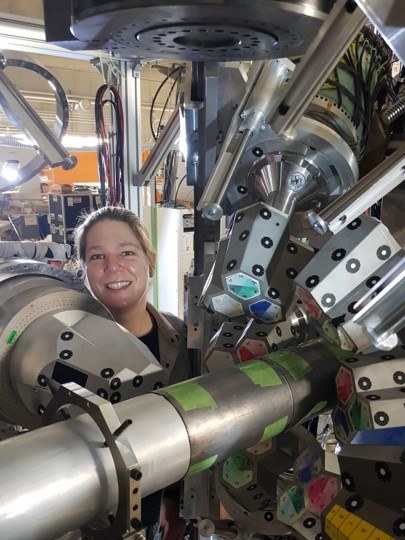
Foto-Rechte: Dr. Kathrin Wimmer
Dr. Viktorija Glembockytė (Munich) - Kalenderwoche 25
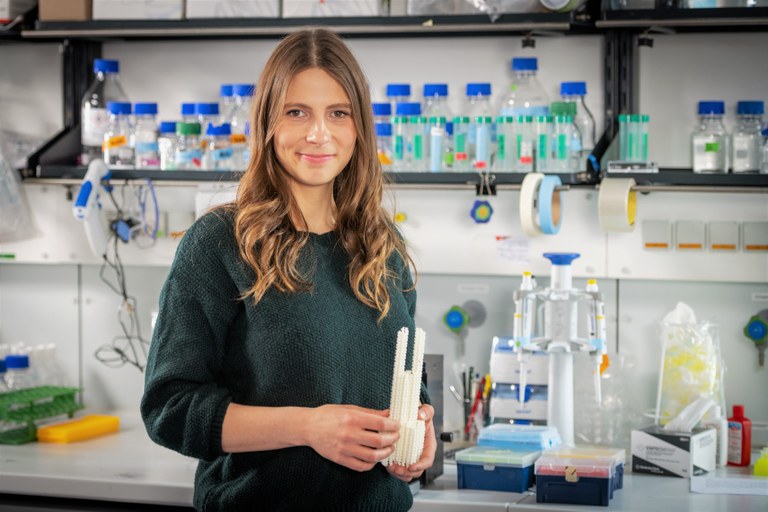
Foto-Rechte: Dr. Viktorija Glembockytė
M.Sc. Caroline Girmen (Aachen) - Kalenderwoche 24
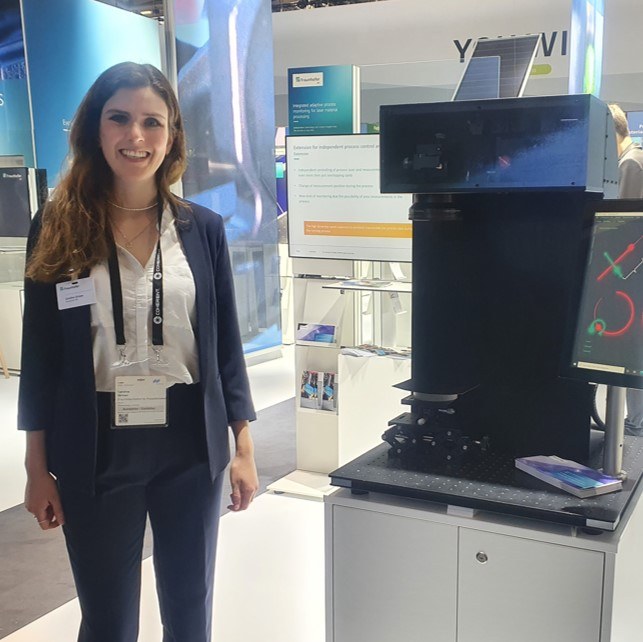
The photo shows Caroline during a laser fair in Munich early this year.
Foto-Rechte: M.Sc. Caroline Grimen
Prof. Martina Havenith (Bochum) - Kalenderwoche 23
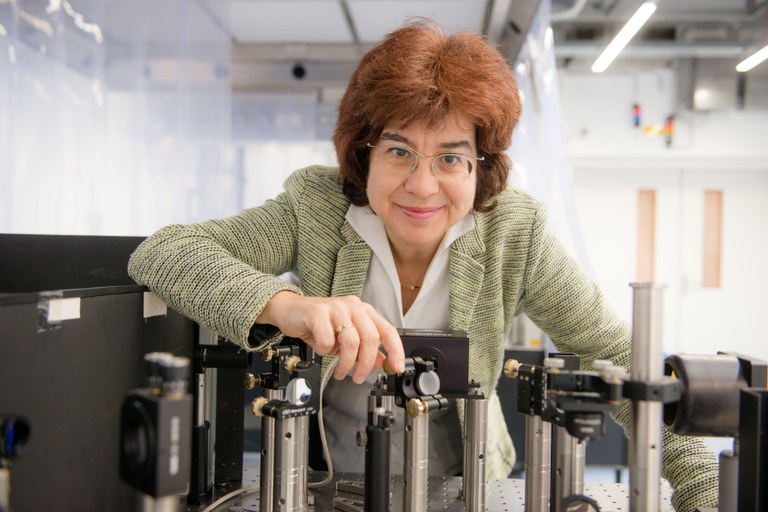
Martina received her Ph.D. and Habilitation for the University of Bonn in Experimental Physics and holds since 1998 a Chair of Physical Chemistry at the Ruhr University in Bochum. She initiated 2012 the DFG funded Cluster of Excellence "Ruhr Explores Solvation" (RESOLV) and the Center of Molecular Spectroscopy and Simulation of Solvent Controlled Processes (ZEMOS) and is since then the director. She has developed new infrared (IR) and terahertz (THz) laser technologies to explore fundamental questions in chemistry. Her research area is solvation science which aims to provide a unifying framework for understanding and predicting solvent processes. She explores linear and nonlinear THz spectroscopic methods and THz calorimetry. Furthermore, she has a focus on microsolvation and ultracold chemistry.
Foto-Rechte: RUB, Marquard
Mai
M.Sc. Katharina Wolk (Mainz) - Kalenderwoche 22
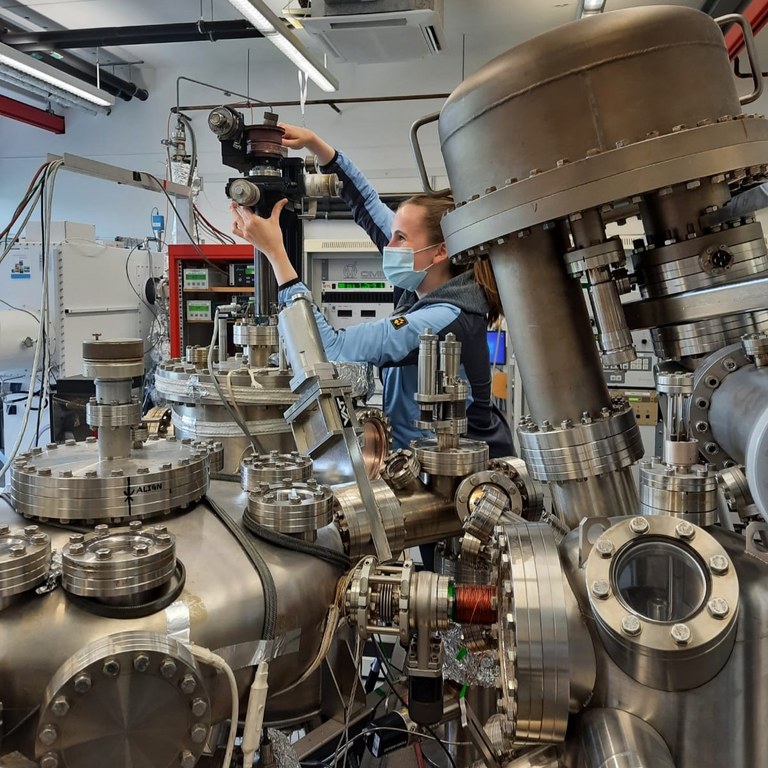
Katharina just finished her Master studies at the Johannes Gutenberg-University Mainz in the field of materials science and spintronics. In the Kläui Lab, under the supervision of apl. Prof. Martin Jourdan, she focused on the growth and characterization of epitaxial Gadolinium Bismuth thin films for spin Hall effect investigations. Katharina’s research, supported by the Deutschlandstipendium, is part of a long-term endeavor to identify new materials with large spin Hall angles for next-generation low-power data storage technologies. Besides her studies, she works as a student assistant in the TWIST Group of Prof. Karin Everschor-Sitte at the University of Duisburg-Essen. Interested in advanced nanoscale imaging techniques and domain walls, she is excited to visit the research group of Prof. Dennis Meier at the Norwegian University of Science and Technology with an Erasmus scholarship.
Foto-Rechte: M.Sc. Katharina Wolk
M.Sc. Nina Stiesdal (Bonn) - Kalenderwoche 20
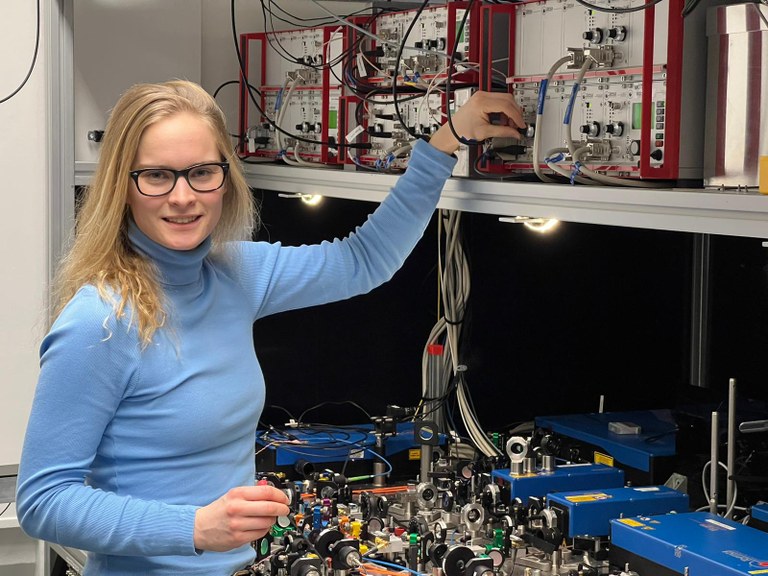
Nina was a Ph.D. student at the University of Southern Denmark (she was enrolled as a student in Denmark until the end of February 2022), where she has worked for most of her Ph.D. in experimental quantum optics. In May last year, she moved with her project to the University of Bonn. Last week, she successfully defended her thesis and will receive her Ph.D. diploma soon.
The focus of her Ph.D. research has been the experimental manipulation of weak pulses of light on the quantum level. This is realized experimentally with ultracold atoms, which are excited to Rydberg states. Rydberg states are highly excited atomic states with very interesting properties. One of these properties is that these atomic states are very sensitive to other high excitations. This sensitivity gives rise to strong interactions between Rydberg excitations, and they can translate these excitations back to the single light quanta.
In her project, she has mainly worked with single Rydberg excitations, but in a setting where the single Rydberg excitation is shared between many atoms. The shared excitation gives rise to an enhancement of atom-light coupling, and she uses this to create what they call Rydberg superatoms, which are many atoms acting together as single two-level systems.
You can read more about her research here.
Foto-Rechte: M.Sc. Nina Stiesdal
Dr. Annika Schmitt (Jena) - Kalenderwoche 19
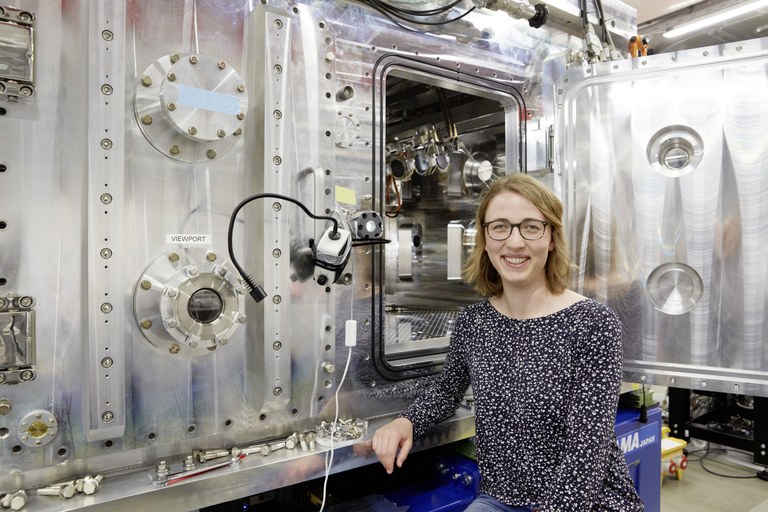
Foto-Rechte: Heiner Müller-Elsner/laif
M.Sc. Lena Klaas (Cologne) - Kalenderwoche 18
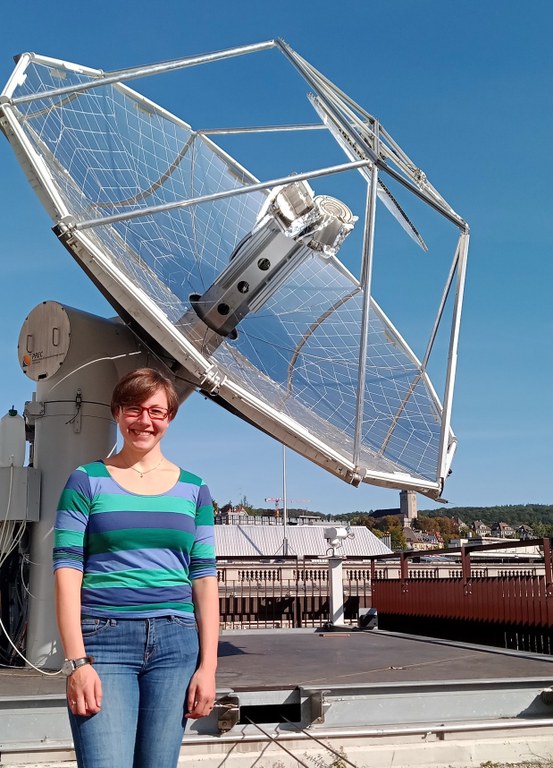
Lena is a Ph.D. student at the Institute of Future Fuels at the German Aerospace Center (DLR). She studied Physics at the University of Cologne and specialized in experimental solid-state physics. During her Ph.D., she focuses on investigating the correlation between structure and redox performance of perovskites. These perovskites are applied in thermochemical cycles whose energy demand can be covered entirely by solar radiation. Thus, thermochemical cycles enable more sustainable production of important gases such as hydrogen, oxygen, and nitrogen. The redox behavior, namely the kinetic and thermodynamic material properties, determines the required conditions, such as the temperature, and thus the applicability of such cycles. She is inspired by the combination of a fundamental understanding of a material's properties and the sustainable applicability of that material.
Foto-Rechte: M.Sc. Lena Klaas
April
B.Sc. Cecilia Fruet (Tübingen) - Kalenderwoche 17
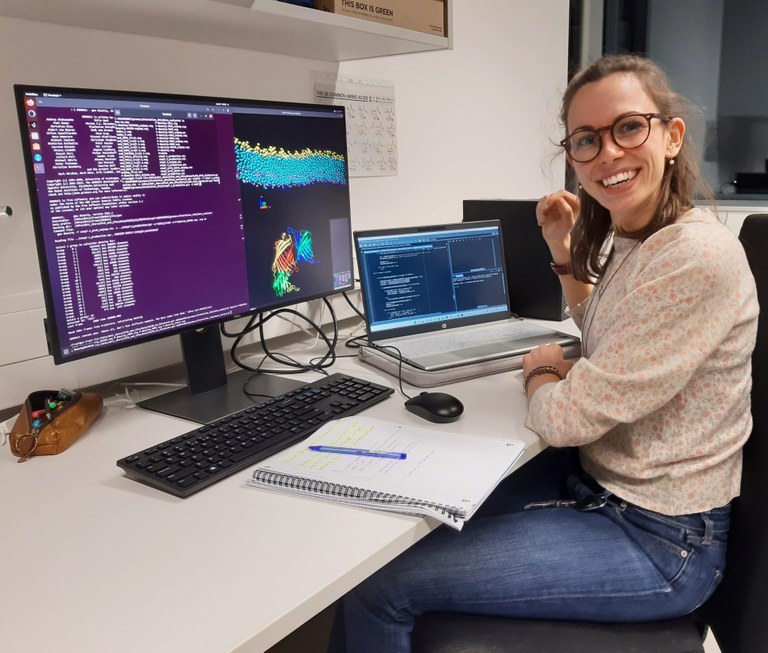
Cecilia is a Master’s student in Physics, enrolled in a Double Degree Program between the Universities of Trento (Italy), and Tübingen. She has a strong interest in the theoretical and computational physics of soft and biological matter.
She is currently working on her Master’s thesis project as a Guest Scientist at the Max Planck Institute for Biology Tübingen, Department of Protein Evolution, under joint supervision of Professors A. N. Lupas, M. Oettel, R. Potestio and their research groups. There, she is investigating through computational simulations the role of a protein in the export of capsular polysaccharides, which are molecules forming the bacterial capsule, a polysaccharide protective layer located outside the cell envelope.
The relevance of this research area stems from the fact that the elucidation of the capsular polysaccharides export mechanism might lead to a better understanding of the process of building bacterial capsules, which are the chief causative agents of the virulence of bacteria.
Foto-Rechte: B.Sc. Cecilia Fruet
M.Sc. Lisa Schlüter (Munich) - Kalenderwoche 16
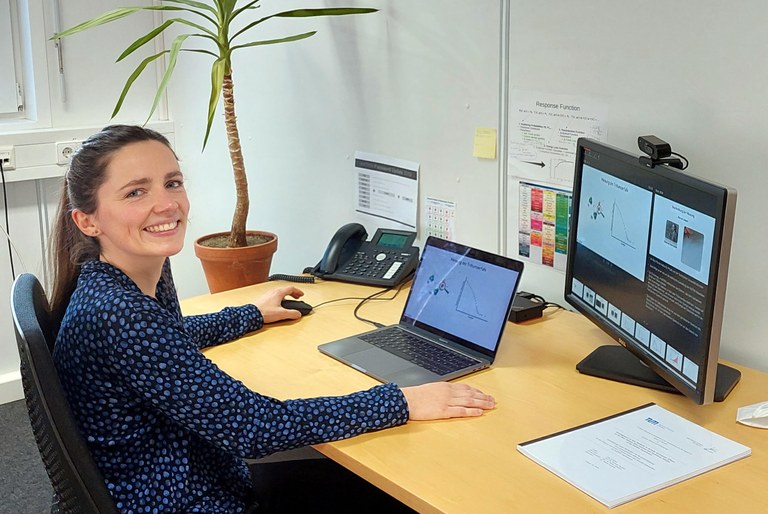
Foto-Rechte: M.Sc. Lisa Schlüter
Dr. Hendrike Braun (Kassel) - Kalenderwoche 15
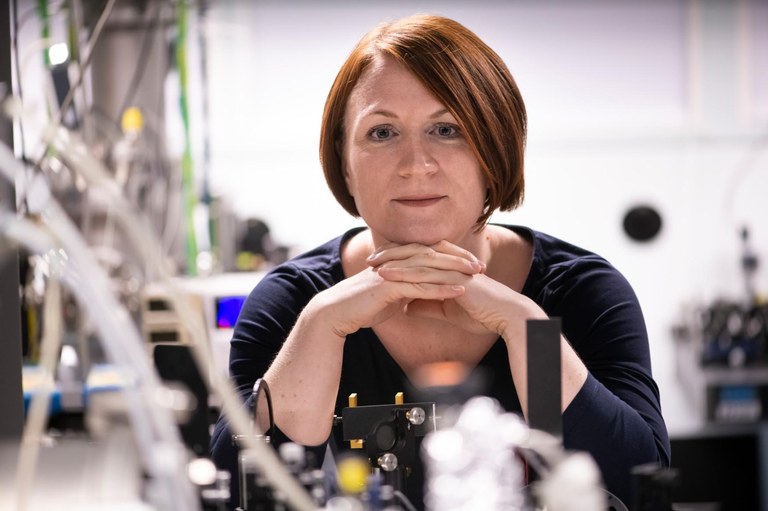
Foto-Rechte: Dr. Hendrike Braun
Dr. Joanna Drążkowska (Munich) - Kalenderwoche 14
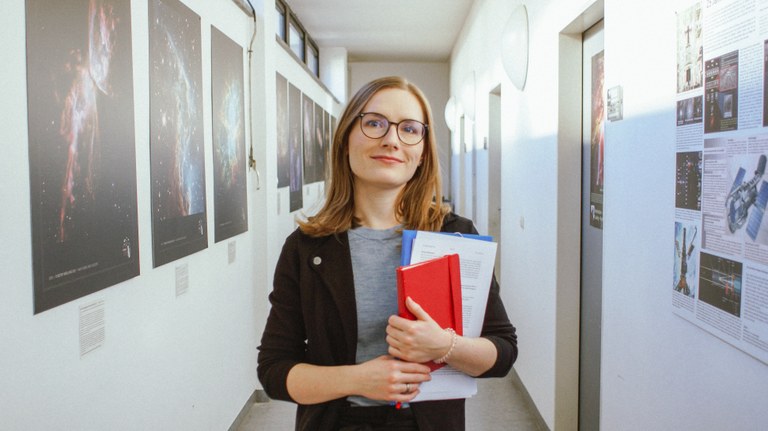
The photo shows her in the University Observatory of the LMU Munich.
Foto-Rechte: Dr. Joanna Drążkowska
März
Prof. Dr. Astrid Lambrecht (Jülich/Aachen) - Kalenderwoche 13
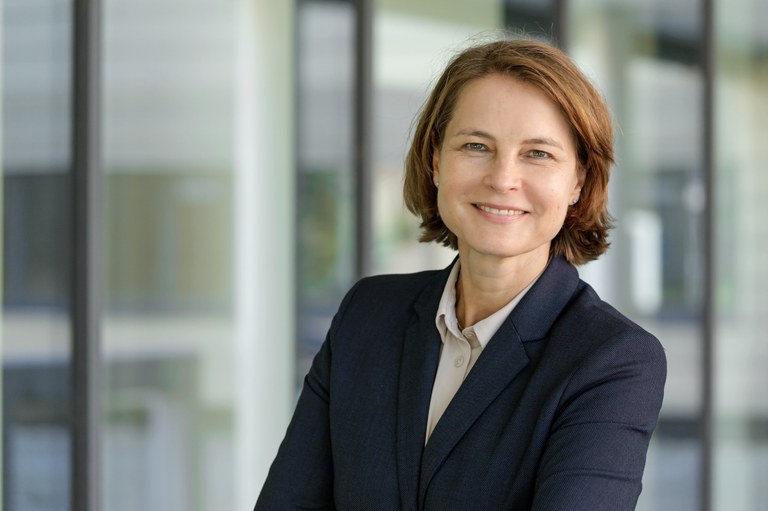
Astrid is a quantum physicist with special interest in quantum optics, quantum fluctuations, and fluctuation-induced forces. Her research focuses on the Casimir-Effect, which manifests itself as an attractive force between two parallel and uncharged plates in vacuum, and which may have applications in micro-electro-mechanic systems used in smart devices, airbags, or printers. Understanding the role of the Casimir-Effect in physics-inspired questions in other fields, such as biology and chemistry, is her special interest.
Astrid joined the Board of Directors of Forschungszentrum Jülich in 2021 [Pressreport] and currently holds a professorship at RWTH Aachen University. At Forschungszentrum Jülich, she oversees the Scientific Division I, which focuses on physics and information technology-related research.
Foto-Rechte: Prof. Dr. Astrid Lambrecht
Dr. Laila Linke (Bonn) - Kalenderwoche 12
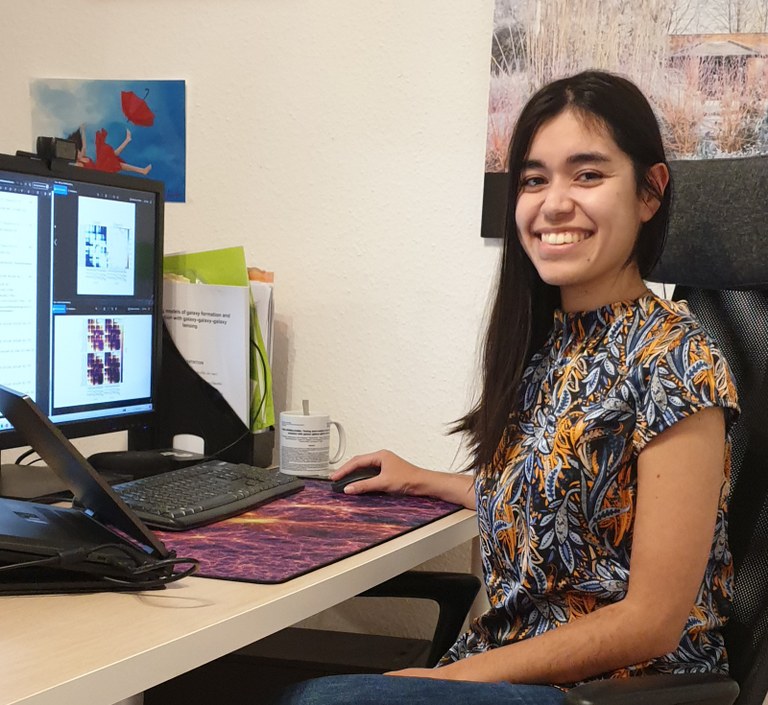
Foto-Rechte: Dr. Laila Linke
Dr. Michaela Arnold (Darmstadt) - Kalenderwoche 11
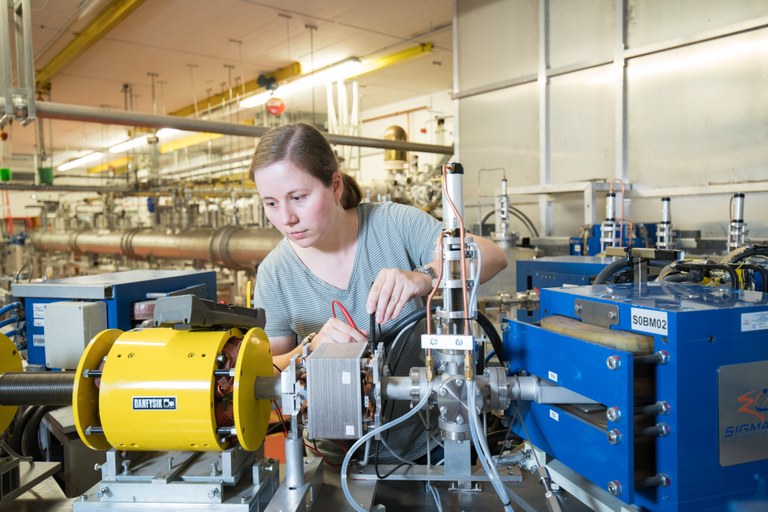
Michaela was awarded the DPG Young Scientist Award for Accelerator Physics in 2021 for her work in the field of ERLs. She is the principal investigator of various research projects on ERLs, e.g., funded by the DFG (Research Training Group GRK 2128) or by the State of Hesse (Research Cluster ELEMENTS). The photo shows her in the accelerator hall of S-DALINAC, checking the resistance of magnet coils.
Foto-Rechte: Jan-Christoph Hartung
M.Sc. Vanessa Nadig (Aachen) - Kalenderwoche 10
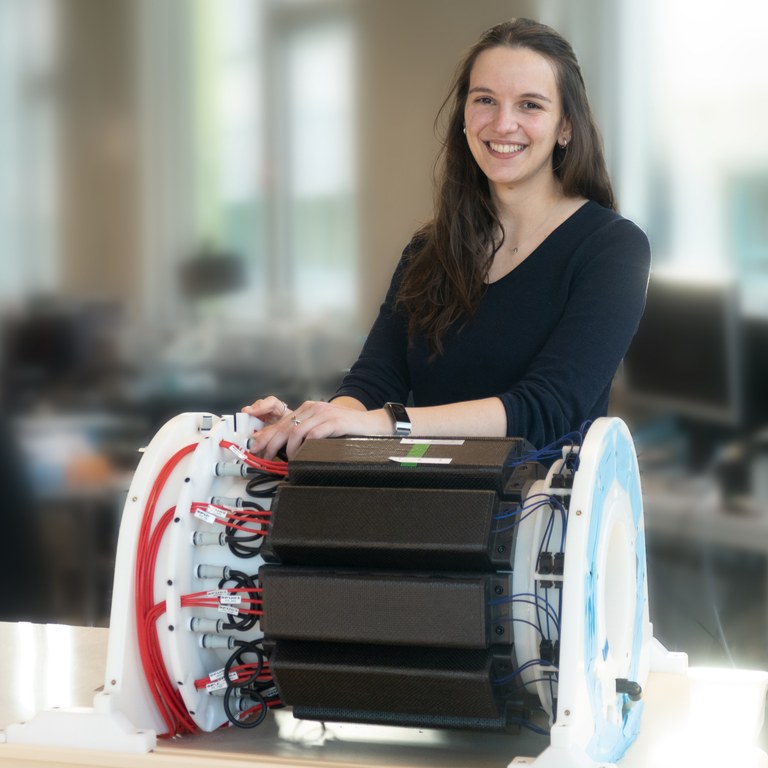
Foto-Rechte: M.Sc. Vanessa Nadig
Februar
M.Sc. Antonia Barghoorn (Freiburg) - Kalenderwoche 9
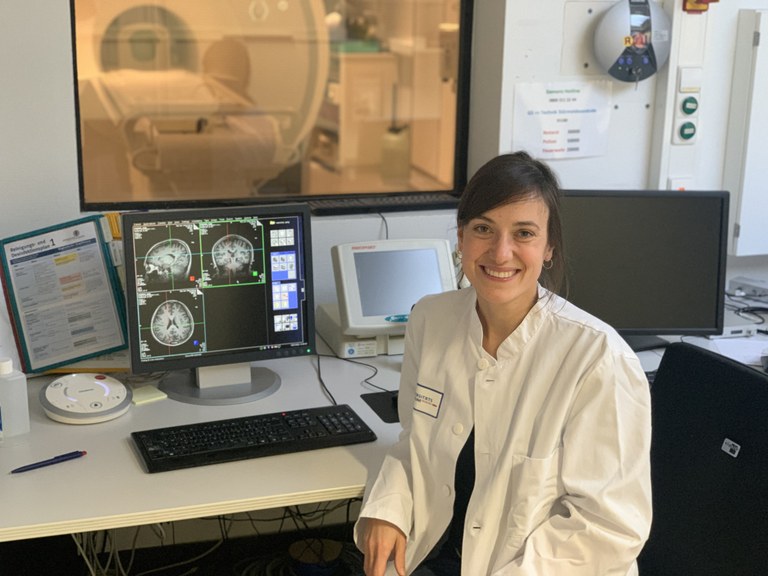
Foto-Rechte: M.Sc. Antonia Barghoorn
Dr. habil. Dana Zöllner (Magdeburg) - Kalenderwoche 8
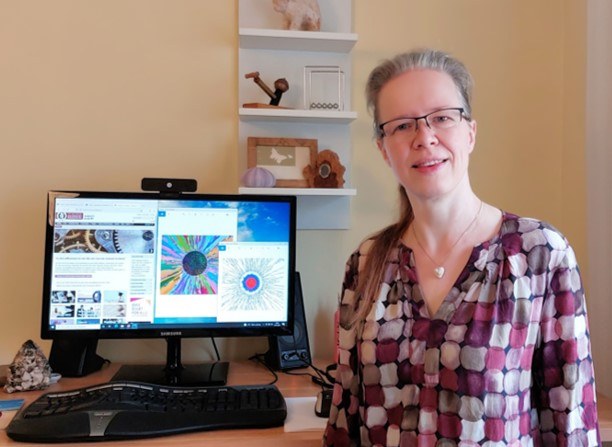
Dana is a materials scientist at the Otto-von-Guericke-University in Magdeburg who uses numerical and analytical methods to study microstructure-property relationships in various materials from nanocrystalline gold to molluscan shells based on experimental measurements. Her research focuses mainly on changes of microstructural defects such as crystalline interfaces, i.e., grain boundaries due to deformation and thermal annealing processes, improving our understanding of materials, and laying a foundation for the development of new materials.
As of September 2020, Dana is a coordinator of the Graduate Academy of the Otto-von-Guericke-University, where she focuses on promoting young postdoctoral fellows on their career paths.
Dana Zöllner is also an Otto Mønsted guest professor at the Danish Technical University in Lyngby.
Foto-Rechte: Dr. habil. Dana Zöllner
Dr. Antje Peters (Münster) - Kalenderwoche 7
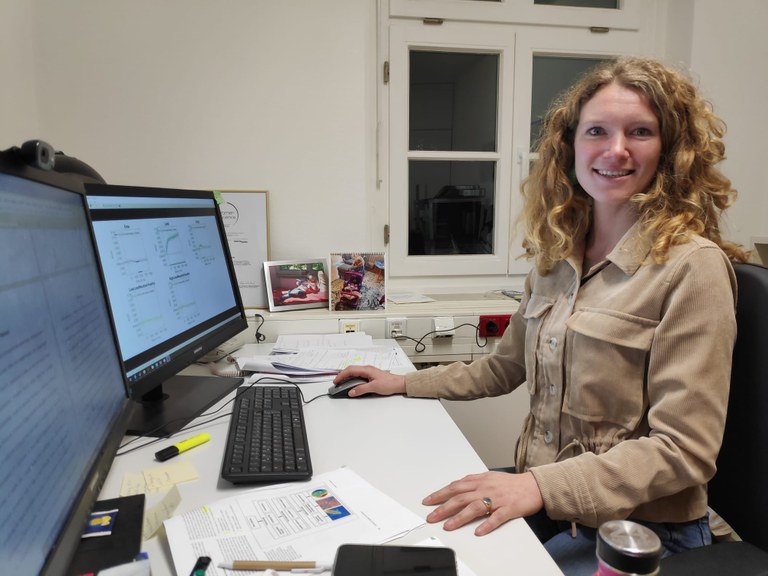
Foto-Rechte: Dr. Antje Peters
M.Sc. Helena Frazão (Rostock/Warnemünde) - Kalenderwoche 6
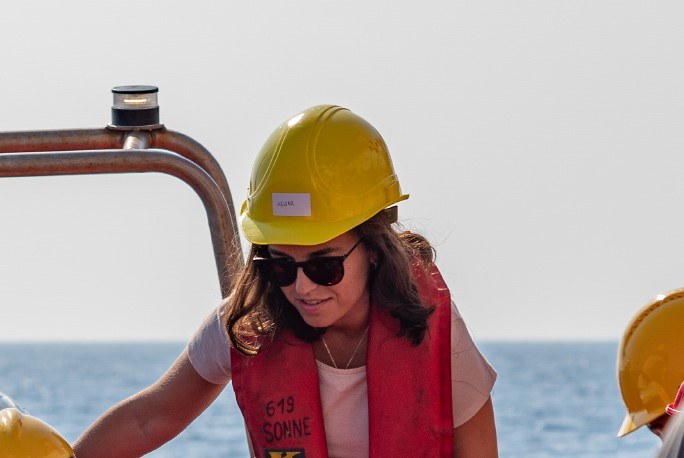
Foto-Rechte: M.Sc. Helena Frazão
Januar
Dr. Pushparani Micheal Raj (Garching/Munich) - Kalenderwoche 5
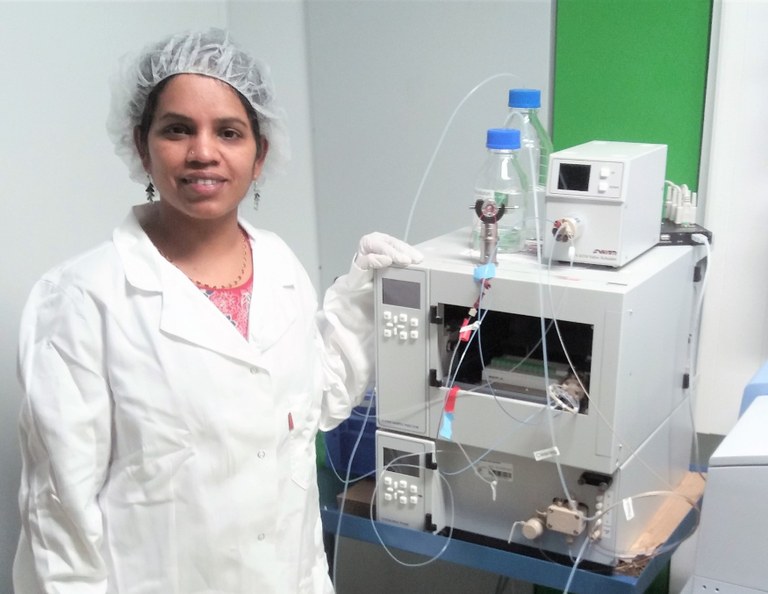
Foto-Rechte: Dr. Pushparani Micheal Raj
Prof. Dr. Susanne Mertens (Munich) - Kalenderwoche 4
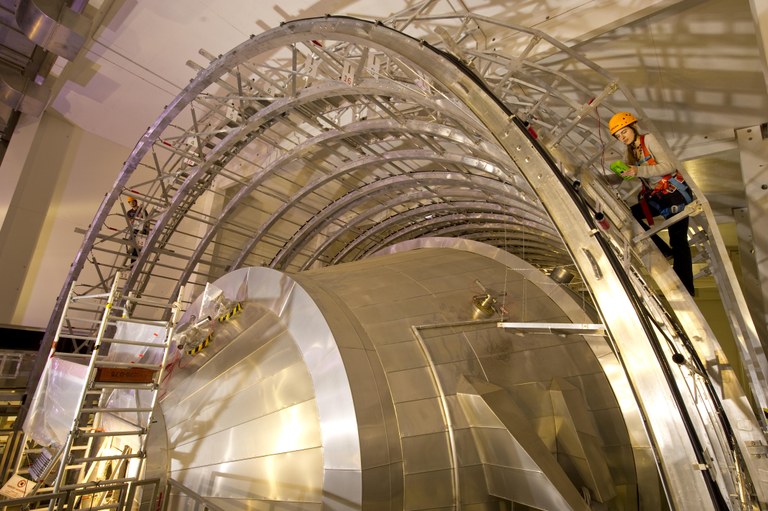
Foto-Rechte: Prof. Dr. Susanne Mertens
Prof. Dr. Joanna Waniek (Rostock/Warnemünde) - Kalenderwoche 3
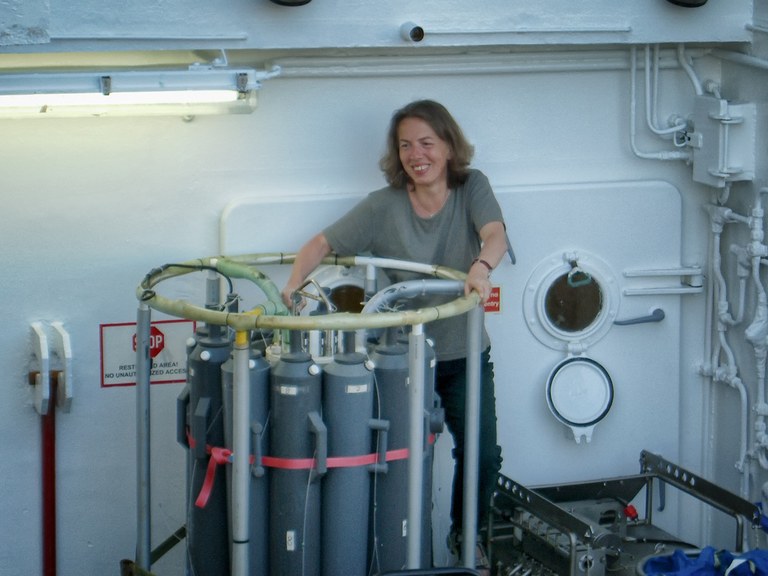
Joanna is a physical oceanographer by training. She is a professor (apl.) at University Rostock and works at the Leibniz Institute for Baltic Sea Research Warnemünde. Her working group studies the interactions between biological and physical processes in the ocean on different time and space scales. Of special interest are those physical processes which influence the production, modification, and sedimentation of particles in the water column of the world ocean. In their research, they are considering both the natural and the anthropogenic particles. Most of their research activities are carried out in the Northeast Atlantic and in the Baltic Sea, as well as in the South China Sea. Their recent Sino-German project Megacity’s fingerprint in Chinese southern marginal seas: Investigation of pollutant fingerprints and dispersal aims to study the marine environmental conditions in an area spanning from the northern shelf in proximity to the Pearl River of the South China Sea towards the deep sea. The area is an excellent natural model laboratory to study the exchange processes between the land and the ocean (Pearl River), the variability of physical forcing (monsoon, circulation), the drastically increasing anthropogenic stressors (nutrients/eutrophication, organic contaminants, microplastic, antibiotics) following the development of a coastal megacity. Their research aims to improve our understanding of the complex interactions between land, the coastal ocean, and the open ocean and their resulting alterations due to the effects of climate variability and anthropogenic stressors in a highly sensitive ecosystem.
The photo shows her on board the research vessel Poseidon checking the functionality of the CTD (Conductivity-Temperature-Depth) rosette system.
Foto-Rechte: Prof. Dr. Joanna Waniek
Prof. Dr. Karoline Wiesner (Potsdam) - Kalenderwoche 2
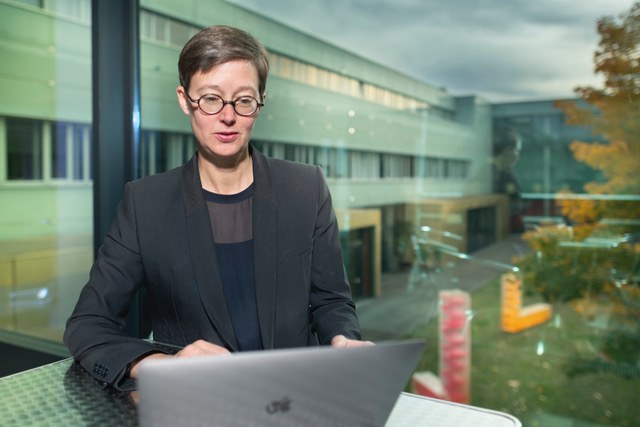
Foto-Rechte: Thomas Roese
Prof. Dr. Beate Heinemann (Freiburg) - Kalenderwoche 1
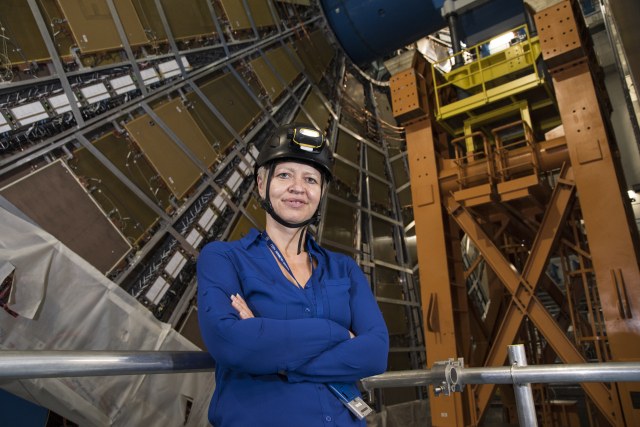
Foto-Rechte: Prof. Dr. Beate Heinemann
Hier geht es zu den Teilnehmerinnen der Physikerin der Woche 2018, 2019, 2020 und 2021 Projekte.